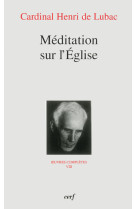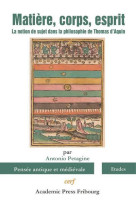--
What is love in God? How does the Father love the Son in the Holy Spirit, at the heart of the Eternal Trinity? ‘As the Father has loved me, so have I loved you,' Christ answers us in definitive manner — and this dual and unique love is revealed to us on the Cross. Therefore our initial question invariably brings every theologian back to this manifestation of love for the world: what is the Love ‘of' God? How can we believe in it and speak of it at the end of a century torn between paganism and horror? With only the text of Revelation to serve as a reference when responding to these questions, Hans Urs von Balthasar expresses the Love that is God and through which the Father endlessly engenders the Son by means of a traditionally soteriological term: that of ‘kenosis'. God's Love for us — manifested in the crucified Christ — can only be kenotic, without breaking the divine unity, because it is equally and eternally in God. Balthasar's original use of the term ‘kenosis', which raises several dogmatic, fundamental and epistemological objections, transversally illuminates this immense theologian's Trinitarian doctrine and Christology.







